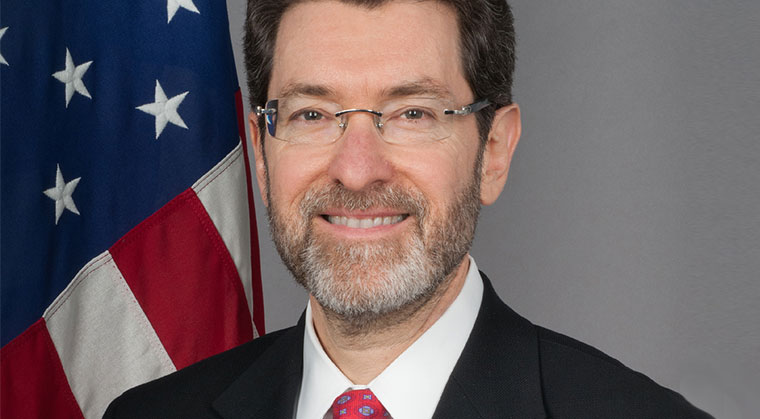The Politics of Pardons


P
resident Trump has pardoned five people during his 18 months in office, but those five are causing quite a stir. They include former Arizona sheriff Joe Arpaio; advisor to former vice president Dick Cheney, Lewis “Scooter” Libby; and Dinesh D’Souza, author and right-wing firebrand.
Critics are suggesting the president is “sending a message” to staffers and confidants (like former Trump lawyer Michael Cohen) caught up in the Russian election meddling investigation: don’t worry, you too will be pardoned if you are charged with a crime.
The president also raised the possibility recently that he has the legal right to pardon himself if he is charged as a result of the
Mueller investigation.
We sought out informed opinions from Alan Dershowitz, professor of law at Harvard University, and Norm Eisen, board chair of Citizens for Responsibility and Ethics in Washington and a senior fellow in governance studies at the Brookings Institution.
For the record, Trump has also issued one commutation during his term, that of Sholom Rubashkin.
Professor Alan Dershowitz
Do the pardons send a message to Michael Cohen and others like him?
I don’t think so. [The president’s] been thinking about these pardons for a long time. Look, I met with him and I asked him to do a commutation for Rubashkin. He asked me for all the facts. You certainly couldn’t in any way benefit from commuting the Rubashkin sentence. He did it because he thought it was the right thing to do. He also asked me briefly about both D’Souza and Libby.
The Torah says “tzedek tzedek tirdof” and the commentators ask why the word “tzedek” is written twice. The answer is that one of them refers to lawful justice and the other refers to rachmanus. And I think the president is engaging in that. I mean, sure, it may very well be the case that D’Souza and others are guilty, but you show compassion if it’s called for.
Do you think Trump can pardon himself?
It’s an absurd question. It’ll never happen, and nobody knows the answer. He can’t pardon himself from impeachment — that’s in the Constitution. And since he can’t be criminally prosecuted, there’s no reason why the president would ever consider pardoning himself. So I think it’s just one of these law school hypothetical questions.
What do you think about the charge that Trump is considering pardoning his friends (like Martha Stewart, who once served jail time) and not the people who need the pardon the most?
You should do both. Being a friend shouldn’t stop somebody from getting a pardon, but Trump should also pardon people he doesn’t know. He didn’t know Rubashkin, obviously.
Norm Eisen
Do the pardons send a message to Michael Cohen and others like him?
Trump is doing the right thing for the wrong reasons. Some of the people who have received pardons or commutation, I supported — for example, Sholom Rubashkin. His sentence was too severe. But there’s no doubt the president is doing this to send a message to witnesses to stay strong. He’s made it explicit in tweets. He’s hinting that he will offer them a pardon in order to end the criminal investigation of him by the federal government. Because once the witnesses are pardoned, they no longer have any reason to testify against him. The pressure has been removed.
From a legal perspective, is it kosher? Is it legal?
It’s glatt treif. Under the Constitution, he has very broad pardon power, but if he’s doing it in order to obstruct justice, or if he goes even further and pardons himself, you can go beyond the limit. If you made a pardon in exchange for a bribe, it would be corrupt intent. It’s the same thing if he makes a pardon to end an investigation of himself. We never had a president who did that. The only one who came close was Nixon, who was considering whether he could pardon himself. And the Department of Justice said no, it would be an unconstitutional pardon. The same thing if he’s giving a pardon to Michael Cohen to save himself; that is possible obstruction of justice. (Originally featured in Mishpacha, Issue 713)
Oops! We could not locate your form.













